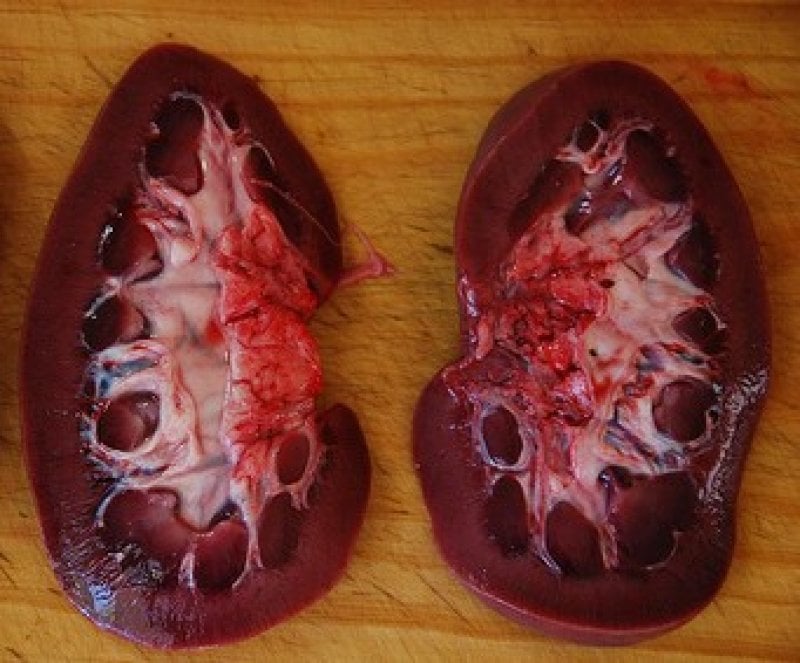Researchers at Massachusetts General Hospital report a medical first: lab-grown kidneys successfully transplanted into rats, where they functioned properly — albeit not quite as efficiently as natural kidneys. Transplants of simpler lab-grown tissues (a windpipe in 2008, for instance) created using similar methods have worked, but this success sets a new bar. It offers hope that even complex organs like kidneys might so be available to grow on demand in the lab from a patient’s own cells, circumventing the two major hurdles of organ transplants: donor scarcity and organ rejection.
The process of creating the new kidneys involved taking a healthy kidney from a donor rat, chemically stripping it of its cells — leaving only an inert collagen scaffolding — and then reconstructing the organ by providing the scaffold with a supply of kidney cells from newborn rats.
The team is now trying to do the same with human and pig kidneys. If a pig kidney’s collagen scaffolding can be used, it would eliminate any need for a human donor. According to New Scientist, “the team has already successfully repopulated pig kidneys with human cells, but says further studies are vital to guarantee that the pig components of the organ do not cause rejection when transplanted into humans.”
View the original articles here:
- “Kidney breakthrough: complete lab-grown organ works in rats,” New Scientist
- “Rat Kidneys Made in Lab Point to Aid For Humans,” New York Times
- “Kidney created in lab raises hopes for humans,” Boston Globe































